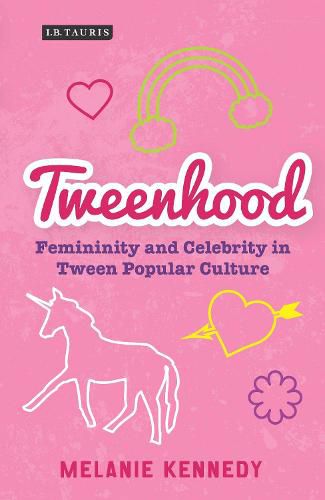Readings Newsletter
Become a Readings Member to make your shopping experience even easier.
Sign in or sign up for free!
You’re not far away from qualifying for FREE standard shipping within Australia
You’ve qualified for FREE standard shipping within Australia
The cart is loading…






A powerful female, pre-adolescent, consumer demographic has emerged in tandem with girls becoming more visible in popular culture since the 1990s. Yet the cultural anxiety that this has caused has received scant academic attention. In Tweenhood, Melanie Kennedy rectifies this and examines mainstream, pre-adolescent girls’ films, television programmes and celebrities from 2004 onwards, including A Cinderella Story (2004), Hannah Montana (2006) and Camp Rock (2008). Her book forges a dialogue between post-feminism, film and television, celebrity and most importantly; the figure of the tween. Kennedy examines how these media texts, which are so key to tween culture, address and construct their target audience by helping them to ‘choose’ an appropriately feminine identity. Tweenhood then, she argues, is transient and a discursive construct whose unpacking highlights the deification of celebrity and femininity within its culture.
$9.00 standard shipping within Australia
FREE standard shipping within Australia for orders over $100.00
Express & International shipping calculated at checkout
A powerful female, pre-adolescent, consumer demographic has emerged in tandem with girls becoming more visible in popular culture since the 1990s. Yet the cultural anxiety that this has caused has received scant academic attention. In Tweenhood, Melanie Kennedy rectifies this and examines mainstream, pre-adolescent girls’ films, television programmes and celebrities from 2004 onwards, including A Cinderella Story (2004), Hannah Montana (2006) and Camp Rock (2008). Her book forges a dialogue between post-feminism, film and television, celebrity and most importantly; the figure of the tween. Kennedy examines how these media texts, which are so key to tween culture, address and construct their target audience by helping them to ‘choose’ an appropriately feminine identity. Tweenhood then, she argues, is transient and a discursive construct whose unpacking highlights the deification of celebrity and femininity within its culture.